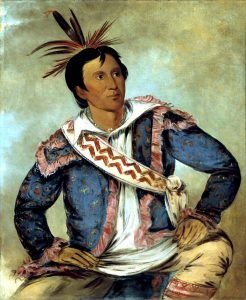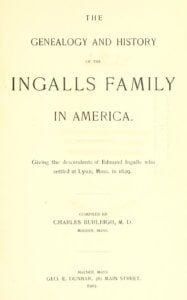The Meeting in 1811 of Tecumseh and Apushamatahah
The meeting in 1811, of Tecumseh, the mighty Shawnee, with Apushamatahah, the intrepid Choctaw. I will here give a true narrative of an incident in the life of the great and noble Choctaw chief, Apushamatahah, as related by Colonel John Pitchlynn, a white man of sterling integrity, and who acted for many years as interpreter to the Choctaws for the United States Government, and who was an eye-witness to the thrilling scene, a similar one, never before nor afterwards befell the lot of a white man to witness, except that of Sam Dale, the great scout of General Andrew Jackson, … Read more





